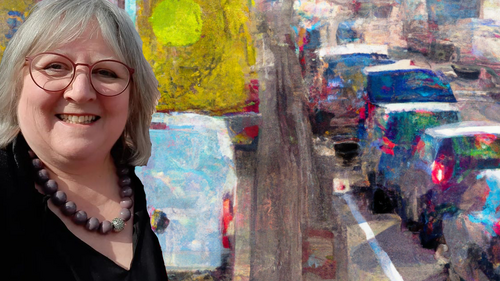A referendum is not the answer

It is important to start by noting that this motion today is not about the merits or otherwise of the proposals put forward for consultation by the Greater Cambridge Partnership, but about the method by which a decision should be made about them.
It is after all perfectly possible to be deeply sceptical both about the GCP proposals, and also about a simplistic Yes-No referendum as the means to resolve them.
A referendum offers a deceptively simple but also very expensive way of resolving a complex issue. Far from providing a clear answer, it gives no clarity at all about any impacts outside whatever simplistic question has been chosen. Cornish fishermen have been learning that lesson for some time now.
It’s absolutely the worst way to resolve a complex set of inter-related issues, about climate, and air quality, and the use of public space, and how to offer everyone who needs it the opportunity to move around the county efficiently, affordably, and safely, and about who should pay for that.
There is no room for dialogue in a referendum, no room for compromise, or complexity, or cooperation. Everything is black or white, yes or no, good or bad, right or wrong. All distilled down into a simplistic question with a simplistic binary answer. A referendum would give no informative answer on what residents do actually want the Council, or the Greater Cambridge Partnership, or anyone else, to deliver.
A referendum would also give a vote to many people whom the issue does not affect at all, and deny a vote to many people whom the issue affects very significantly.
People who live in Cambridgeshire but never ever come into Cambridge would have a vote on journeys they never make but which others make every day. Conversely, people who live outside Cambridgeshire, for example in Royston or Saffron Walden or Haverhill or Downham Market, but who travel into Cambridge every day, would have no say at all on their regular journey.
Very elderly residents miles from Cambridge, some of whom who may never even leave the house, would have a vote on journeys they would never make but which many younger residents make daily. Conversely, sixteen and seventeen year olds who are not on the electoral register, but who travel into Cambridge every day for education or employment, will be denied a vote on their regular journey.
This cannot be a just or fair way to make such a significant decision. The 24,000 responses to the GCP’s consultation will contain much more information about what people want, and what they don’t. They will be the basis on which the GCP will decide whether or not it wishes to progress with the scheme it consulted on, or some other scheme, or not to progress any scheme at all.
And if the GCP does decide it wishes to progress with a scheme, and if it involves any element of road pricing, it will then be up to councillors here, in this chamber, to vote on that, one way or the other. It’s called representative democracy and it’s how this country has made decisions since the introduction of the universal franchise.
And it will be a decision of this council, not of the district councils as the party opposite are pretending."
